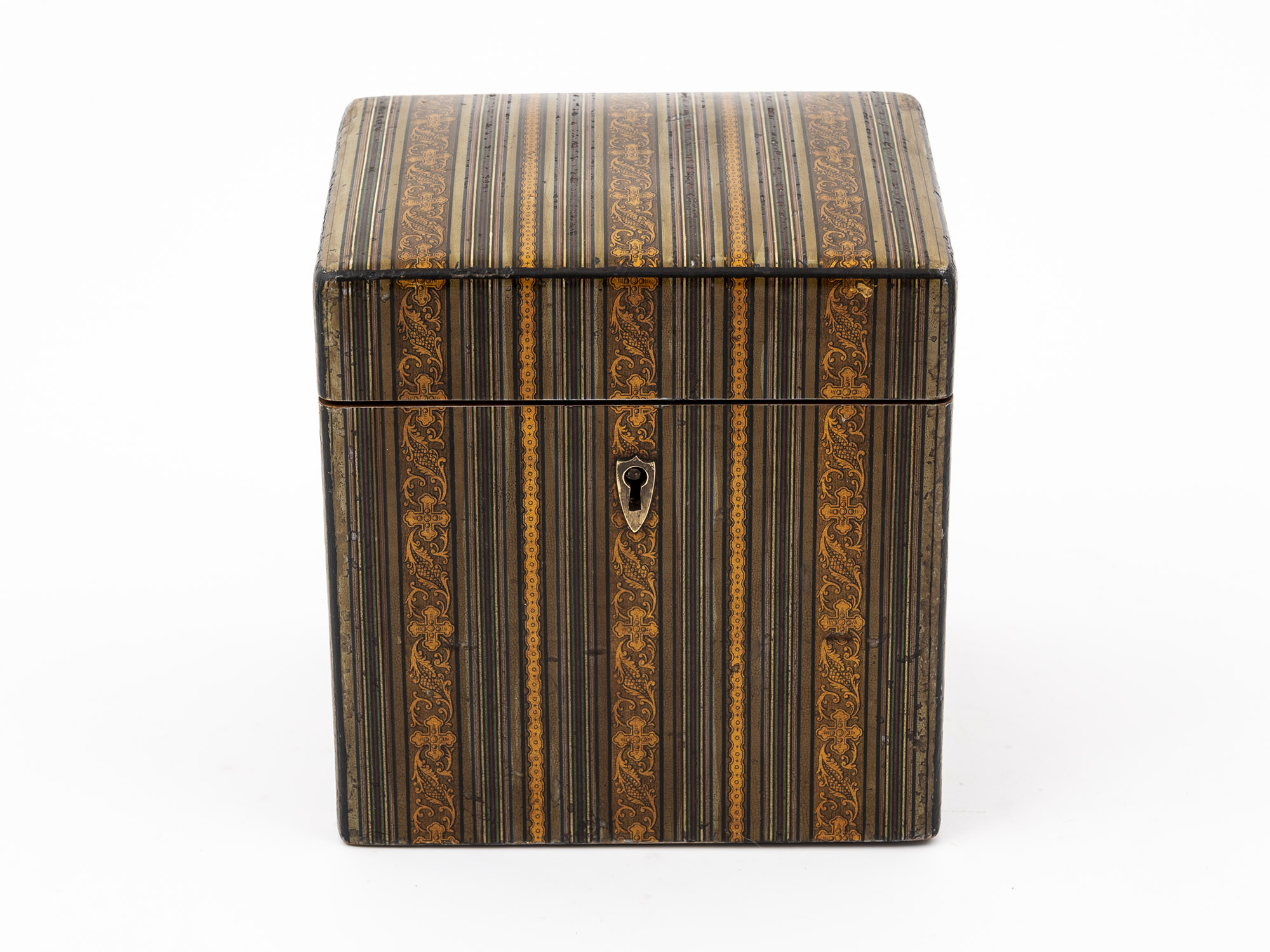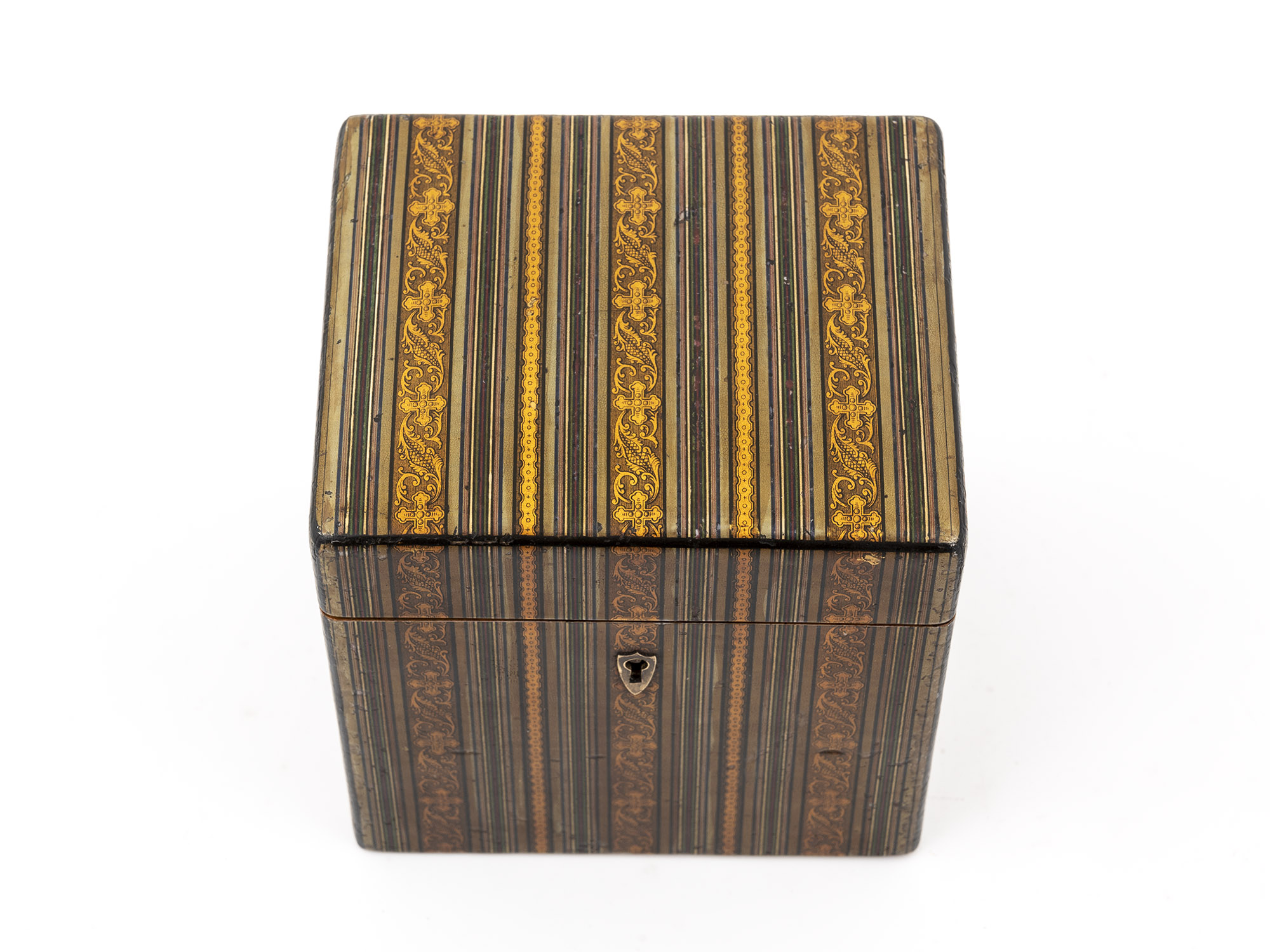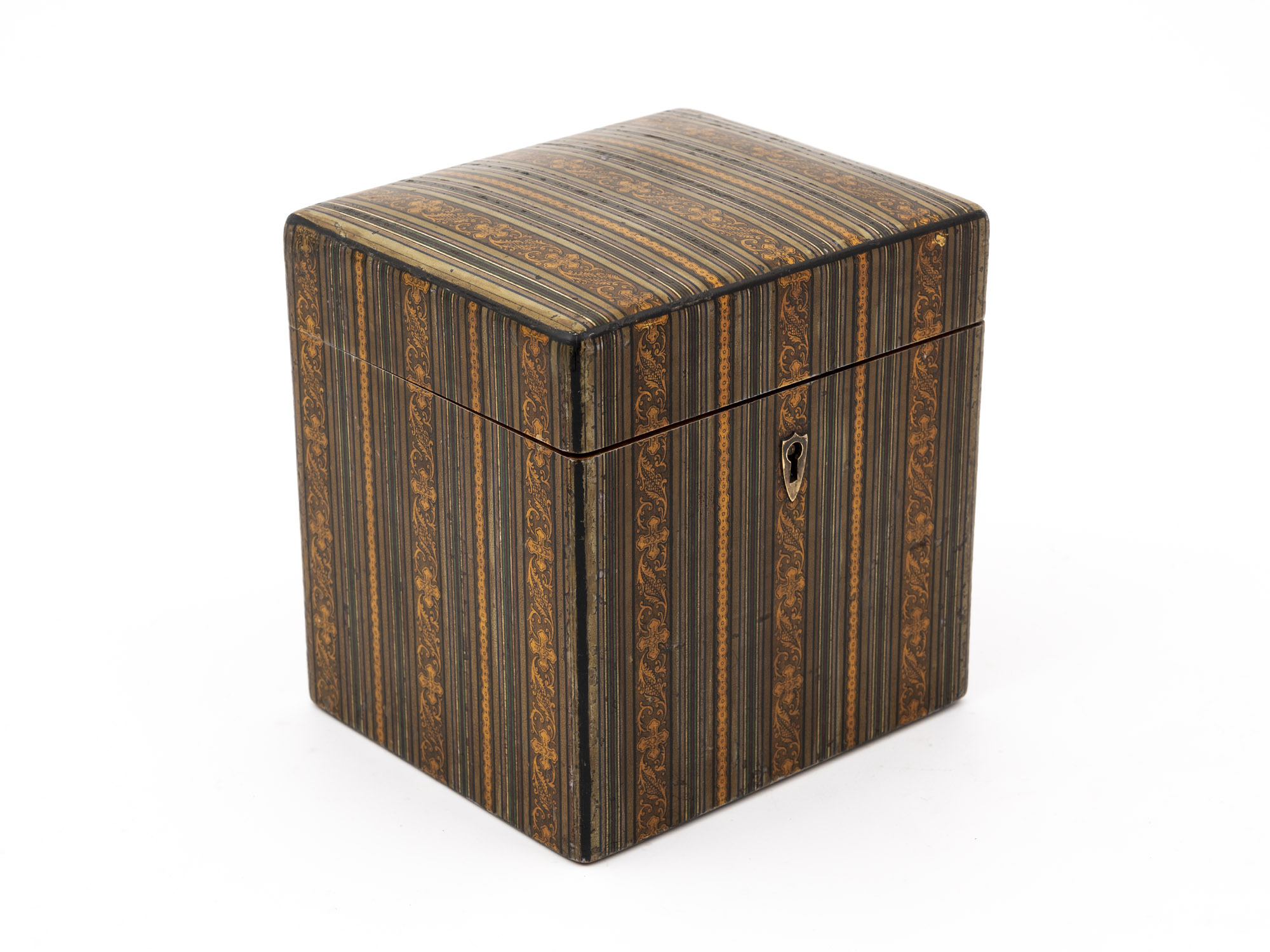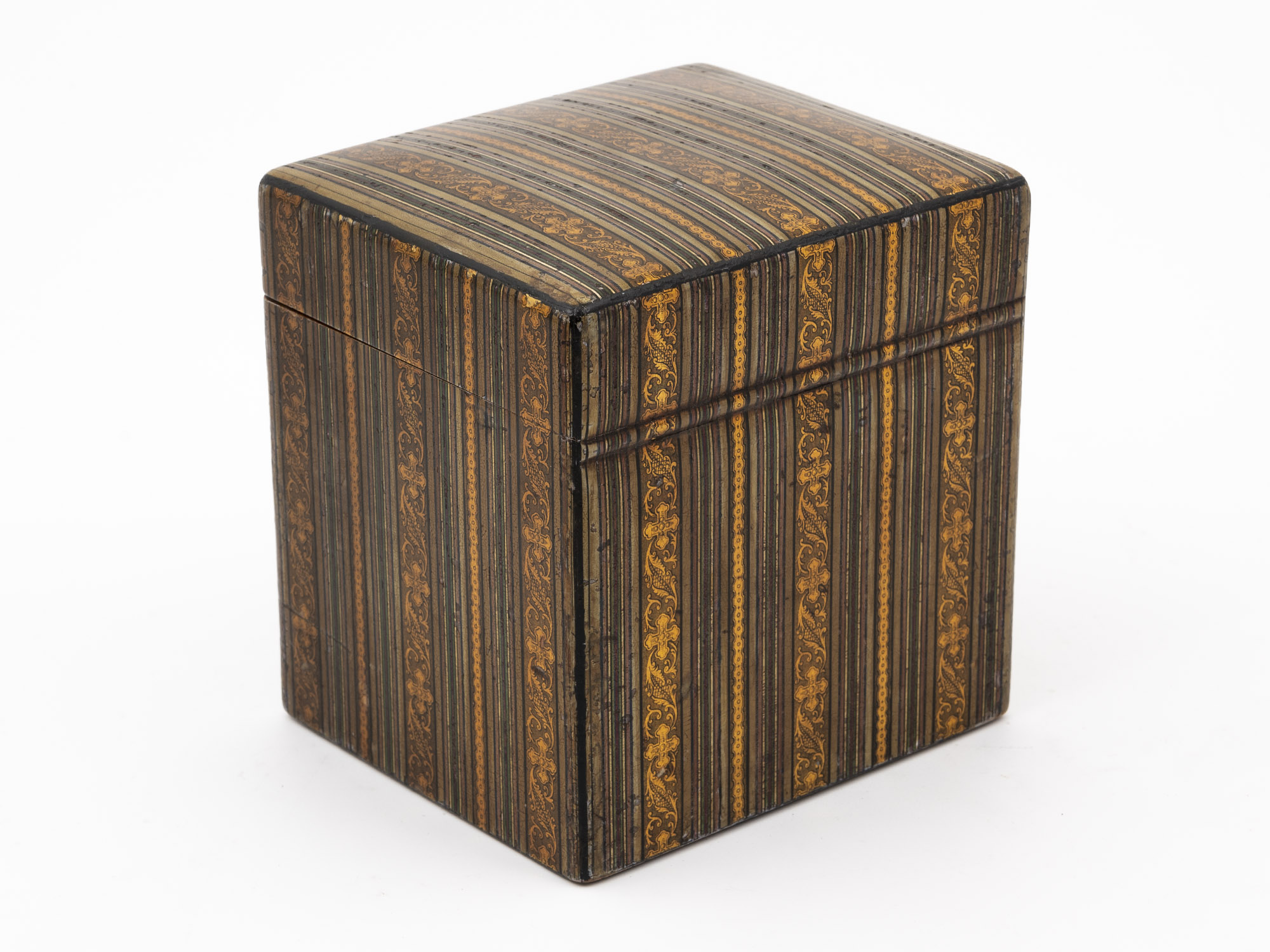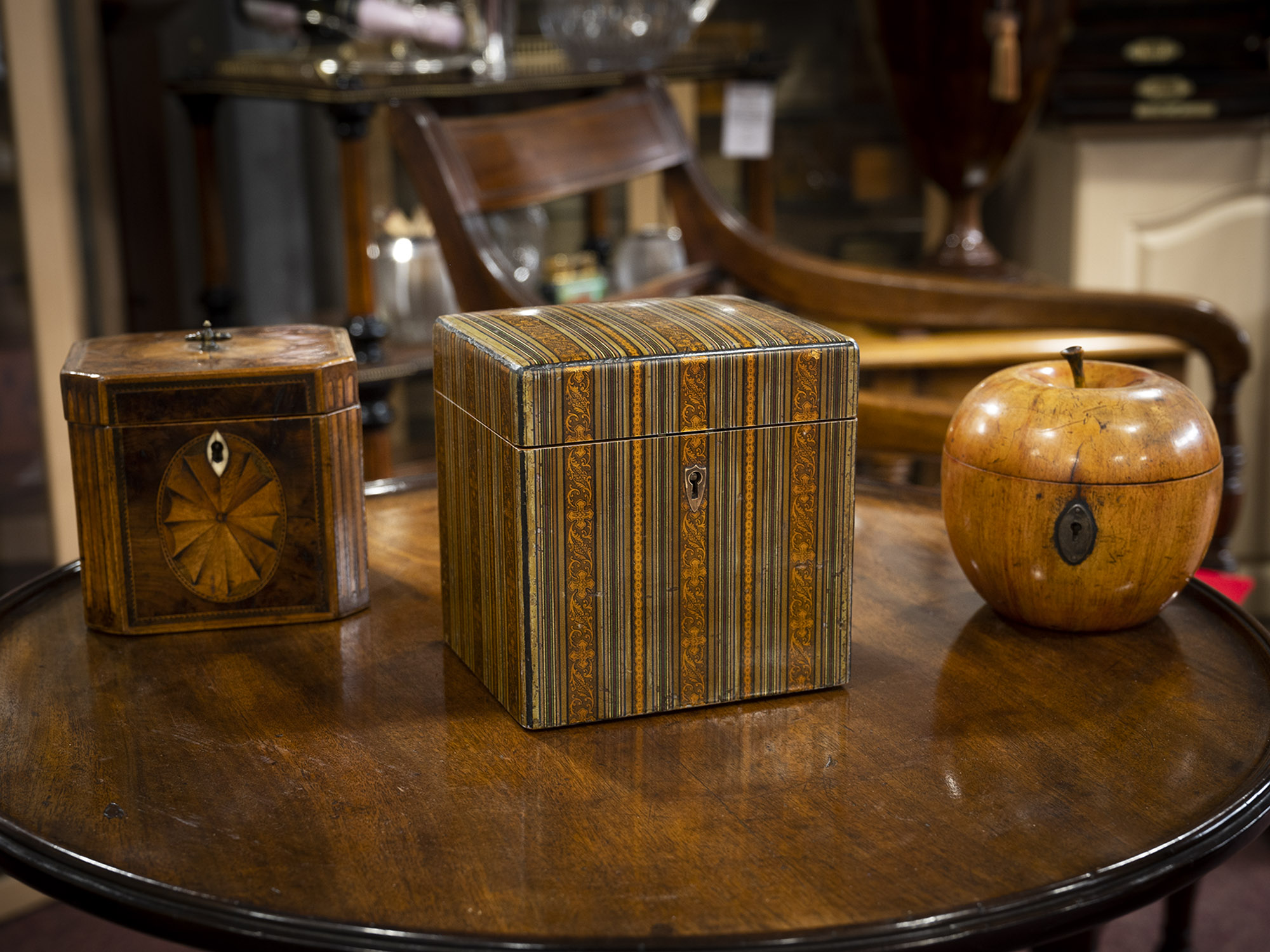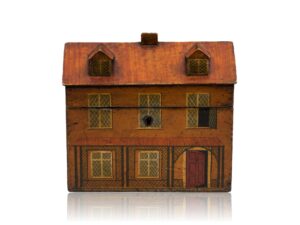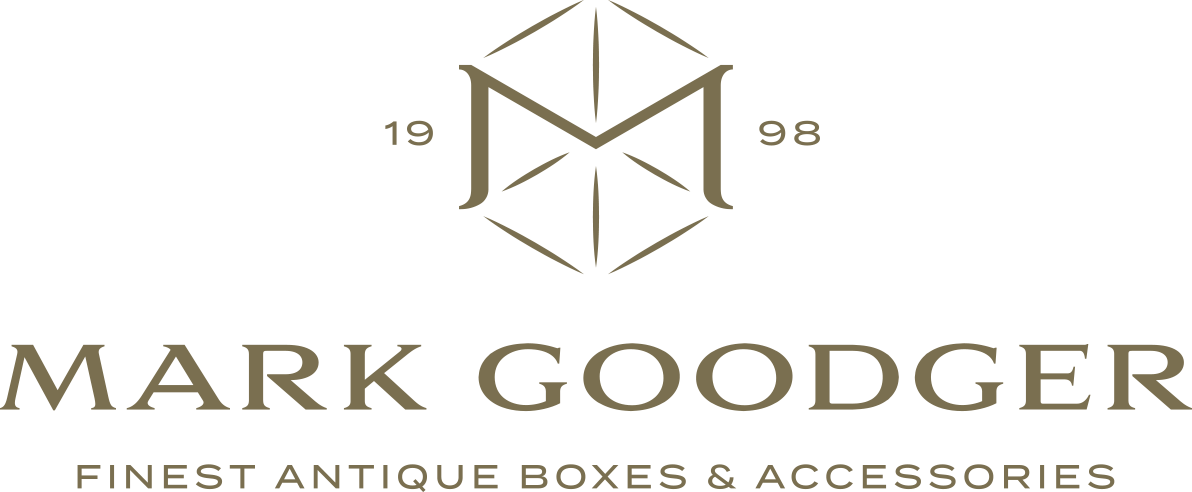Scottish Mauchline Ware Tea Caddy Smiths (attributed)
£850.00
Scottish Mauchline Ware From our Tea Caddy collection, we are delighted to offer this rare Mauchline Ware Tea Caddy. The Tea Caddy of rectangular form extensively decorated with a repeating pinstripe pattern throughout the entire exterior of the Tea Caddy upon... Read More
Rare Mauchline Ware attributed to Smiths of Scotland

| Dimensions | 13.5 × 11.5 × 14 cm |
|---|---|
| Year | |
| Period | |
| Country | |
| Medium | |
| SKU | 500850-ACE |
Description
Description
Scottish Mauchline Ware
From our Tea Caddy collection, we are delighted to offer this rare Mauchline Ware Tea Caddy. The Tea Caddy of rectangular form extensively decorated with a repeating pinstripe pattern throughout the entire exterior of the Tea Caddy upon a Sycamore carcass. The decoration features a striped effect with alternating classical scrollwork, linked chain and pin striped vertical line transfers in shades of gold, green and red. A shield-shaped escutcheon finishes the exterior of the Caddy. When opened the Tea Caddy reveals a single Caddy compartment with traces of the original foil lining and the Caddy the original full length wooden Cumnock Hinge. The Tea Caddy dates to the late Georgian Period during the reign of George IV Circa 1830. The Tea Caddy is a rare example of early Mauchline Ware especially because of the Type of decoration used and extremely good condition, a superb addition to any collection. We firmly attribute the Tea Caddy to renowned Scottish Mauchline Ware makers Smiths from the extremely close similarities between this Caddy and a previous one in our archives signed by Smiths.
The Tea Caddy comes complete with working lock and tasselled key.
Mauchline Ware was the production of Scottish white-wood products, it was mainly manufactured from the 1820s until 1939. The production of souvenir woodware for the tourist market began in the 1790s with the snuff box industry in Ayrshire. By 1820, Mauchline ware was well established, supplying souvenirs from wood grown ‘on the Field of Bannockburn’, ‘on the Abbey Craig’, ‘on the slopes of Stirling Castle’ and made into sewing requisites, egg cups, trinket boxes and many other kinds of souvenirs, transfer printed with a line drawing of the place. The firm Smith’s who regarded as the the leading and most renowned manufacturer of Mauchline War among a few lesser known and shorter lived companies. They ranged from the basic transfer as on small vases to boxes and smaller household accessories / useable objects each piece having the view of the place of purchase. The transfer subjects ranged across Scotland and more of the British Isles to the rest of the world. As a result of the early Mauchline Ware, Tartan ware became extremely popular after W & A Smiths invented a machine for “weaving” tartan designs on paper. Fernware was then introduced in the 1870s which involved applying actual ferns to the wood which was then stippled in dark brown. The ferns were then removed and the wood varnished. Sycamore was mainly the wood of choice across the whole product range. These products were sent all over the world and today there is a fierce collectors market, especially for the rarer pieces. Sadly a fire in 1933 stopped the entire production which was never restarted and Smith’s finally closed down in 1939. Smiths held a Royal Warrant and were makers to his majesty during the 19th century.
Smiths (later W & A Smiths) were the leading manufacturer of Mauchline Ware. Their Boxware Factory was located in Mauchline Ayrshire, West Scotland. Founded by Andrew Smith circa on 1831 who began by making snuff boxes. These boxes had a secret hinge called ‘The Cumnock Hinge’, and this type of box work had ‘Migrated’ to Mauchline from Cumnock where over one hundred and ten men and women were employed. The company suffered from two internal fires one in 1869 and a second in the late 1880s both times the firm rebuilt and introduced new machinery. This type of factory was prone to fires due to the inflammable nature of materials and the constant heat in the drying sections of the factory.
Sycamore also known as Harewood is a member of the Maple family, found in Europe. It is light yellow in colour and is often a very clean wood, with a straight, fine grain. The wood is often pippy. However, these pips are usually a very similar colour to the rest of the wood making them hardly visible.
With every purchase from Mark Goodger Antiques, you will receive our latest catalogue, a Certificate of Authenticity, detailed care instructions for your chosen piece and an independent invoice (for insurance purposes) will be enclosed. As well as being protected by a no-hassle, money-back policy, your piece will be entirely insured during the shipping process to ensure the safety of your item.
Additional information
Additional information
| Dimensions | 13.5 × 11.5 × 14 cm |
|---|---|
| Year | |
| Period | |
| Country | |
| Medium | |
| SKU | 500850-ACE |
